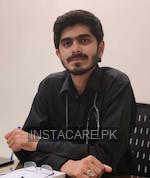Infectious Diseases - Symptoms, Risk factors and Treatment
Last Updated On Saturday, February 21, 2026
Infectious Diseases in Urdu
ہمارے ارد گرد لاکھوں بیکٹیریا اور وائرس موجود ہیں جنہیں ہم اپنی ننگی آنکھوں سے نہیں دیکھ سکتے۔ ان میں سے کچھ ہمیں نقصان نہیں پہنچاتے، جبکہ کچھ واقعی کر سکتے ہیں۔ لہذا، ہمیں ان کو پکڑنے سے بچنے کے لیے تمام احتیاطی تدابیر پر عمل کرنا چاہیے۔
وائرس، بیکٹیریا اور فنگس انفیکشن کا بنیادی سبب ہیں۔ وہ ہمارے ارد گرد موجود ہیں اور ہمارے جسم پر حملہ کر سکتے ہیں، اس لیے وہاں رہتے ہیں اور تعداد میں بڑھتے ہیں۔ مزید یہ کہ وہ ہمارے جسم کے معمول کے کام میں مداخلت کرتے ہیں۔ وہ لوگ جو امیونوسوپریسنٹس لیتے ہیں - ایسی دوائیں جو آپ کے مدافعتی نظام کو طویل مدت تک دبا دیتی ہیں، اور جن کو کینسر یا ایڈز جیسی بیماریاں ہیں ان میں انفیکشن کا زیادہ خطرہ ہوتا ہے۔
بعض اوقات، ہمارا مدافعتی نظام ہمارے جسم سے متعدی ایجنٹوں کو نکال سکتا ہے۔ لیکن بعض اوقات، بیکٹیریا، وائرل یا فنگل کا بوجھ اس حد تک بڑھ جاتا ہے کہ مدافعتی نظام کے لیے ان کے خلاف لڑنا مشکل ہو جاتا ہے۔ ان حالات میں مریض کو فوری طبی علاج کی ضرورت ہوتی ہے۔ اگر علاج نہ کیا جائے تو، بعض اوقات انفیکشن کے نتیجے میں جان لیوا حالت ہو سکتی ہے جسے سیپٹک شاک کہتے ہیں- ایسی حالت جس میں انفیکشن آپ کے جسم میں پھیل گیا ہے۔
جرثومے ایک شخص سے دوسرے میں سفر کر سکتے ہیں اور جسم کے سوراخوں جیسے منہ، ناک، مقعد، کان یا جنسی اعضاء سے داخل ہو سکتے ہیں۔ لہذا، ہم سب کو خود کو اور اپنے خاندانوں کو محفوظ رکھنے کے لیے احتیاطی تدابیر پر عمل کرنا چاہیے۔
Infectious Diseases in English
There are millions of bacteria and viruses present around us that we can not see with our naked eyes. Some of them do not harm us, while some really can. Therefore, we must practice all the preventive measures to avoid catching them.
Viruses, bacteria, and fungi are the main causative agents of infections. They are present around us and can invade our body, hence reside and multiply there in numbers. Moreover, they interfere with the normal functioning of our bodies. People who take immunosuppressants- drugs that suppress your immune system for the long term, and those who have diseases like cancer or AIDS are more prone to catch infections.
At times, our immune system can get rid of the infectious agents from our bodies. But sometimes, the bacterial, viral, or fungal load increases up to that extent that it becomes difficult for the immune system to fight against them. In these situations, the patient needs urgent medical treatment. If left untreated, infections can at times result in a life-threatening condition called septic shock- a condition in which infection has spread to your body.
Microbes can travel from one person to another and enter through the openings of the body like the mouth, nose, anus, ears, or genitals. Therefore, we all must practice preventive measures to keep ourself and our families protected.
Ways To Prevent Infections
Hand Washing
Our hands play a major role in the transmission of microorganisms from place to another. If a person having a respiratory tract infection has some microbes on his hands after coughing, and they touch a surface, and you touch the same surface, you will get those microbes on your hand. Therefore, whenever you reach back home from shopping or some other things, or after visiting someone who is ill, make sure you wash your hands properly for at least 20 seconds. Make a lather of soap, rub it on the front and back of your hands, and wash them with running water. Also, do not forget to wash your fingers and nails.
The Right Way To Cough
Cough often occurs as a response to inflammation or infection of the respiratory tract. However, it can also occur due to various other reasons like heart failure, allergy, kidney disease, and some medications. The cough that occurs due to infections can spread microbes through droplets. Therefore, whenever you cough, use tissue paper to cover up your mouth, or you can also wear masks while going out. If you do not have tissue paper, cover your mouth with your hands or elbow. Make sure you wash your hands promptly after coughing or sneezing in them.
Disinfect Cuts
We all have had cuts and wounds due to various reasons. The first thing you should do after the bleeding stops is disinfecting the wound. If you do not do that, microbes can attack it and enter your body, turning it into an infected wound. You can disinfect the cut or wound with an alcohol swab, soap, aftershave, or any other disinfectant available over the counter. But make sure you do that, otherwise, microbes will attack it.
No Sharing
You must maintain a boundary between things you can share and things you can not share. In your house, you can share clothes with your siblings. But you must not share things like toothbrushes, razors, towels, napkins, and tissues. These things should be separate for everyone. Also, if someone is having an infection, do not eat or drink with them in the same utensil. However, you can use it after washing them.
Do Not Scratch or Squeeze
Do not scratch and squeeze your wounds, cuts, and pimples. Doing that can make them infectious. Also, do not touch them. Treat them gently.
Conclusion
Sometimes infections can become life-threatening. Therefore we must practice preventive measures to keep ourselves and our loved ones protected. Also, do not forget to get yourself or your children vaccinated on time. Vaccines also play a major role in preventing serious infections. The most common symptom of any infection is fever. Therefore if you have it, consult with the healthcare provider.







